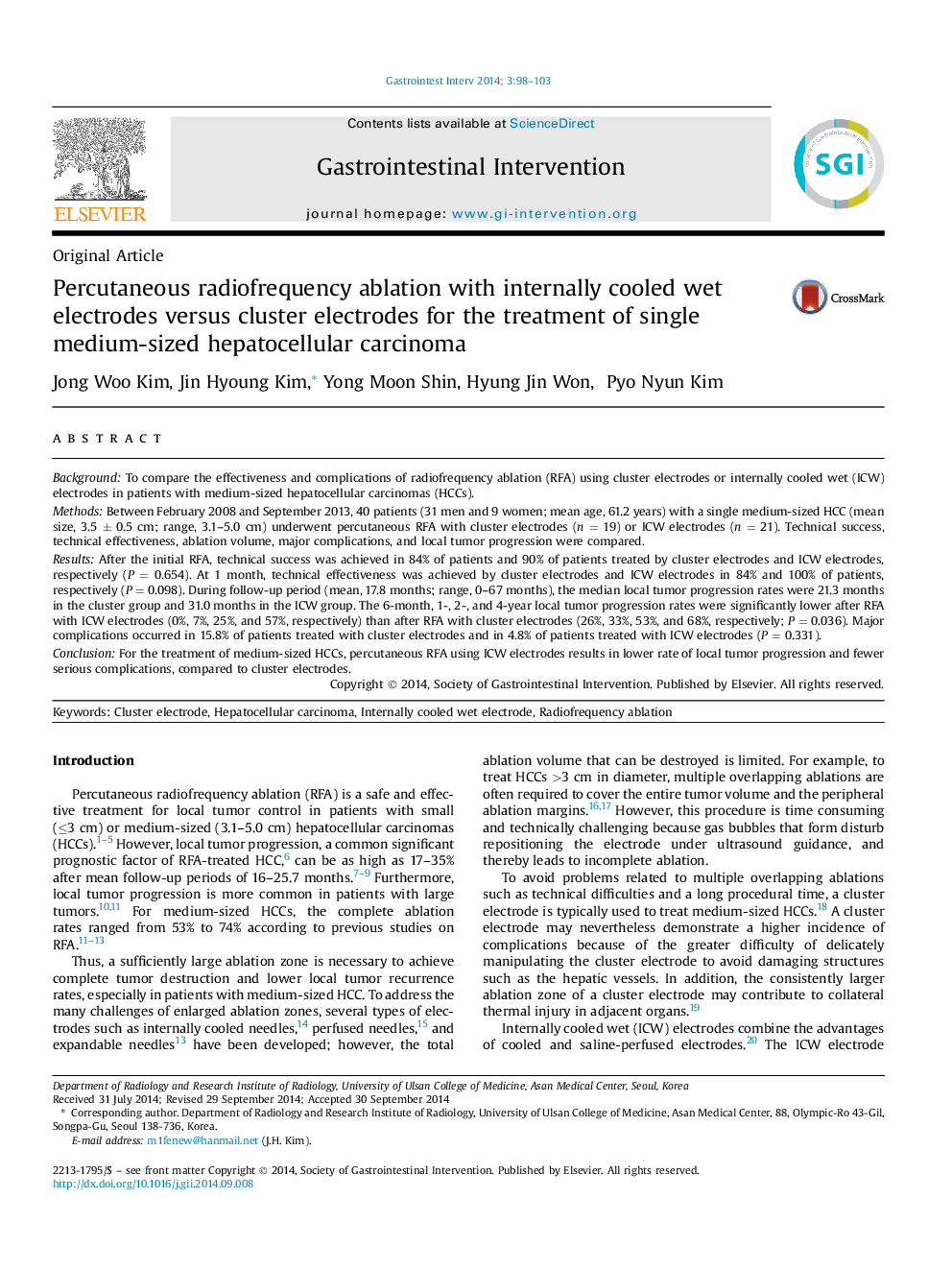| Article ID | Journal | Published Year | Pages | File Type |
|---|---|---|---|---|
| 3310954 | Gastrointestinal Intervention | 2014 | 6 Pages |
BackgroundTo compare the effectiveness and complications of radiofrequency ablation (RFA) using cluster electrodes or internally cooled wet (ICW) electrodes in patients with medium-sized hepatocellular carcinomas (HCCs).MethodsBetween February 2008 and September 2013, 40 patients (31 men and 9 women; mean age, 61.2 years) with a single medium-sized HCC (mean size, 3.5 ± 0.5 cm; range, 3.1–5.0 cm) underwent percutaneous RFA with cluster electrodes (n = 19) or ICW electrodes (n = 21). Technical success, technical effectiveness, ablation volume, major complications, and local tumor progression were compared.ResultsAfter the initial RFA, technical success was achieved in 84% of patients and 90% of patients treated by cluster electrodes and ICW electrodes, respectively (P = 0.654). At 1 month, technical effectiveness was achieved by cluster electrodes and ICW electrodes in 84% and 100% of patients, respectively (P = 0.098). During follow-up period (mean, 17.8 months; range, 0–67 months), the median local tumor progression rates were 21.3 months in the cluster group and 31.0 months in the ICW group. The 6-month, 1-, 2-, and 4-year local tumor progression rates were significantly lower after RFA with ICW electrodes (0%, 7%, 25%, and 57%, respectively) than after RFA with cluster electrodes (26%, 33%, 53%, and 68%, respectively; P = 0.036). Major complications occurred in 15.8% of patients treated with cluster electrodes and in 4.8% of patients treated with ICW electrodes (P = 0.331).ConclusionFor the treatment of medium-sized HCCs, percutaneous RFA using ICW electrodes results in lower rate of local tumor progression and fewer serious complications, compared to cluster electrodes.
